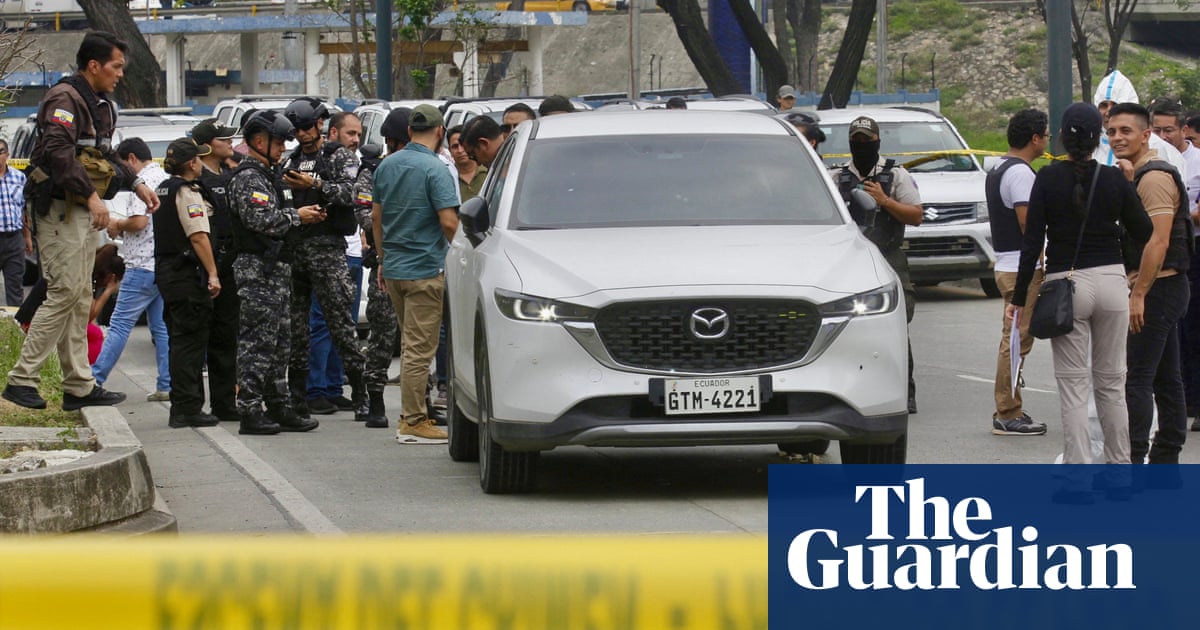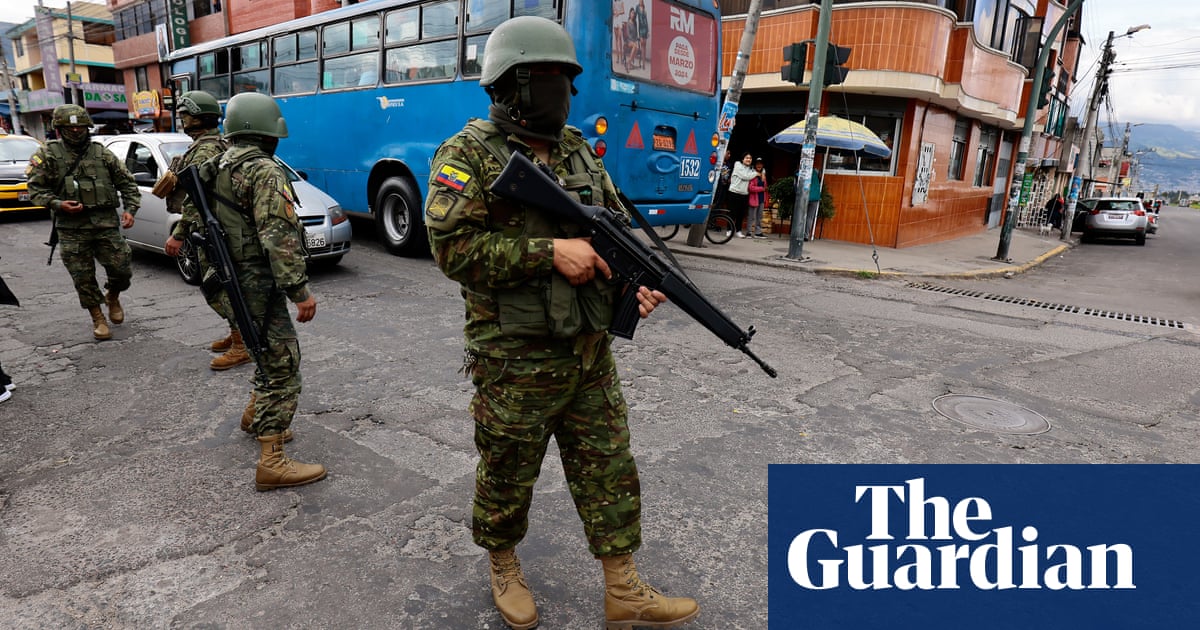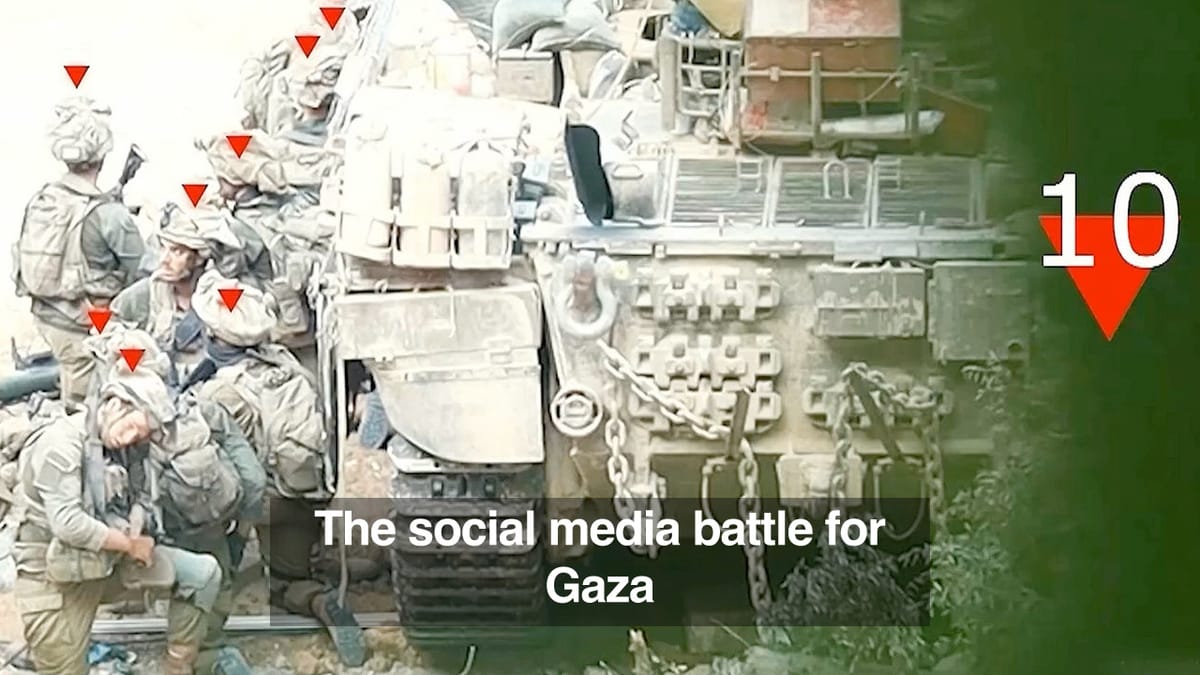- Eco Punks Gazette
- Posts
- Issue 24 - Ukraine and Yemen: Drones Change Wars
Issue 24 - Ukraine and Yemen: Drones Change Wars
Is Ecuador Becoming A Narco State?
Welcome to issue twenty four of the Eco Punks Gazette. To celebrate, we offer you 24 Elsinore beers for free. As long as you can get a mouse in a stubby:
 Eco Punk Brews |
And a reminder, if you dig what we’re doing, we need your help to spread the word! Please share this issue with your friends and post it to your socials! (Thanks for doing so last issue, Wendy!)
Today’s issue delves into geopolitics, and the trends we’re seeing that pose significant disruptions to current socio-political ecosystems.
Table of Contents
Upcoming Events
Today at 11am EST - Can We Trust the Internet?
“A trust layer for the internet is emerging,” a report by CIRA and Continuum Loop, argues that pairing technical trust (e.g., encryption and signing) and human trust (e.g., governance) enables a trust layer to emerge. This allows the Internet community to create trustworthy digital ecosystems and rebuild trust in the Internet as a whole.
The report highlights that the Internet currently lacks this trust layer, and while we can build individual systems that have reasonably good security, we lack a shared framework and the set of tools needed to ensure trustworthy systems exist across all aspects of the internet. The report suggests that by harnessing and creating new standards for both technical and human trust, we can create an interoperable, deeply trustworthy Internet to carry us into the next phases of its use.
One of the co-authors Jacques Latour, the CTO of CIRA will be joining us for a deep dive into trust and the Internet.
Join us just before 11am EST on our stage.ecopunks.live. If you don’t know the password to get in, reply to this email before 10:30am EST!
What really happens to how we think as we age?
We discussed the relationship between aging and cognition in the latest installment in our series on Aging. Maybe, despite what you’ve heard, the news isn’t all bad?
This episode provides a comprehensive exploration of the cognitive aspects of ageing, challenging stereotypes and highlighting the potential for growth, learning, and adaptation throughout the lifespan. Here's a summary of the main points discussed:
Growth and Decline in Ageing: The trio discusses the dual aspects of growth and decline that occur with ageing. While the decline, especially in fluid intelligence (speed of processing and learning new things), is often emphasized, the panel highlights the importance of recognizing areas of growth and maintenance in cognitive abilities.
Crystallized Intelligence: It's noted that crystallized intelligence, which is the accumulation of knowledge, remains relatively stable with age. This stability contrasts with the decline in fluid intelligence and episodic memory.
Learning as a Lifelong Process: The conversation emphasizes the concept of lifelong learning. The trio challenges the notion that education and learning are exclusively for the young, advocating for the recognition of continuous learning throughout all life stages.
Impact of Gender on Cognition and Aging: The group explores how gender might influence the ageing process, particularly in relation to cognition. They discuss whether the mind, extending beyond the brain to include bodily experiences, might be affected differently in men and women.
Technology and Aging: The role of technology in augmenting or supporting cognitive abilities in older age is discussed. They consider how technology can be both a tool for assistance and a barrier, depending on individual comfort and motivation with technology.
Motivation and Problem-Solving in Older Adults: The importance of motivation in learning and adapting to new challenges is highlighted. The trio shares stories and examples of older adults who actively engage in problem-solving and adapting to new situations, demonstrating the capacity for growth and adaptation at any age.
Social Aspects of Aging and Cognition: The discussion touches on the social aspects of aging, including how social interactions and relationships can influence cognitive processes and the experience of ageing.
Education and Cognitive Tools for Aging: They also discuss the role of education in providing cognitive tools and supports to help older adults maintain cognitive function. They emphasize the need for educational approaches that cater to the unique needs and experiences of older adults.
Use a circle!
Next time you help organize an event, use circles! For the audience setup, for the program, for as much as you can! Eco Punk produced events are designed to counter the heuristics and stereotypes that prevent us from achieving ecstatic results. Set up a circuit, see what happens!
Is Ecuador Becoming A Narco State?
Has organized crime taken over Ecuador? Not yet, but we could be headed there. The current political situation in Ecuador is characterized by hyper-polarization and significant unrest.
José Adolfo Macías Villamar, also known as "Fito," is the leader of the powerful gang Los Choneros in Ecuador. He escaped from prison after being tipped off that he would be transferred to a more secure detention facility. The escape has raised concerns about the level of infiltration and corruption within the prison system. Los Choneros is considered responsible for a spike in car bombings, kidnappings, and slayings in the country. The gang is known for controlling the passage of drugs through the Pacific coast, with links to Mexico's Sinaloa Cartel.
The Ecuadorean government has tried to find Fito and crack down on Los Choneros, but their efforts have arguably backfired, as the gang has escalated their tactics, including taking over a TV station:
The prosecutor investigating the TV station attack was then assassinated:
This past weekend Ecuadorean security forces prevented a similar attempt to take over a hospital:
Police in Ecuador have arrested 68 people suspected to be members of criminal gangs, over an alleged attempt to take over a hospital.
Ecuador has imposed a 60-day state of emergency as it battles to control organised crime cartels ⤵️
— Al Jazeera English (@AJEnglish)
10:36 AM • Jan 22, 2024
On the surface this appears as if it is an economic dispute regarding the narcotics business and Ecuador’s strategic position along smuggling routes that feed the US with illegal drugs from South America. However, it is also a political struggle that demonstrates the growing influence of cartels, and the growing ineffectiveness of authorities to stop them.
We should not regard this as an isolated conflict, but a potentially disturbing trend as criminal syndicates around the world continue their growth and influence.
How Ukraine is Transforming Warfare with Drones
The use of drones in the war in Ukraine has significantly transformed conflict and warfare, providing strategic advantages and the ability to see the battlefield in real-time.
Drones, particularly First Person View (FPV) drones, have been used extensively in the war in Ukraine. They have been employed for various purposes, including reconnaissance and conducting air strikes. These drones have been used to target enemy tanks, armored personnel carriers (APCs), and infantry. An FPV pilot can effectively neutralize an anti-air missile system valued at millions with a relatively inexpensive drone.
Drones can provide real-time information on targets' positions, terrain, and enemy movements to commanders on the ground. This real-time data provides a comprehensive picture to battlefield commanders regarding the availability of troops and mission readiness.
Moreover, drones have been used to deliver crucial medical supplies to soldiers during conflict, reducing the risk of sending manned medical assets into the battlespace, thereby exposing personnel to enemy fire and reducing unnecessary casualties.
At the start of the Russian invasion, Ukraine had 7 drone manufacturers. A year and a half later, there were 150, most of them private companies. This increase in drone production has been driven by the urgent need for drones in the conflict, leading to a boom in the industry. The country plans to produce a million First Person View (FPV) drones and more than 11,000 medium- and long-range attack drones this year.
The Red Sea Blockade
Meanwhile in Yemen, we’re seeing a radical shift in the landscape of naval power. Traditionally, maintaining a navy for purposes like blockades required immense resources, making it a strategy only the most powerful nations could employ. However, this dynamic is changing rapidly, as seen in the Red Sea, where the Houthis in Yemen are disrupting a vital shipping route.
The Houthis have been using maritime drones to carry out their naval attacks. These drones can also come in the form of water-borne improvised explosive devices (WBIEDs). They are used to carry out attacks against commercial shipping vessels off the coast of Yemen. The drones are used in conjunction with anti-ship missiles. The attacks have escalated significantly since the start of the current conflict in Gaza on October 7th 2023.
The situation in the Red Sea is a stark example of how the barriers to naval operations are falling. Not only is it a direct consequence of the ongoing proxy war between Saudi Arabia and Iran in Yemen, but it is a tactic sure to spread throughout the region and the world.
As technology continues to evolve and become more accessible, we're going to see further disruptions to crucial shipping lanes. This development underscores the need for a reevaluation of traditional maritime security strategies and highlights the complex interplay of global politics, technological advancement, and regional conflicts.
@novaramedia Macroeconomist Philip Pilkington explains how the Houthis’ actions are creating a historical shift. Watch Pilkington’s full interview with... See more
GoPro Guerilla Warfare
Since the conflict in the Red Sea is directly connected to the war in Gaza, it makes sense to end with a brief look at the use of tech there. This is a long and disturbing read but it is relevant to our analysis of geopolitical ecosystems.
Today we are able to witness the Warsaw Ghetto Rebellion and Stalingrad in real-time. We can see both partisan resistance and the cowardly destruction of civilians, live on social media. As Gil Scott Heron said, “The revolution will not be televised,” and he was right. The legacy media is leaving a legacy of genocidal incitement, but the truth is out there if you go around it, as most of us do these days.
The Resistance has GoPros on, and they’re uploading to Telegram every day.Meanwhile the Israel Occupation Forces have TikTok and they’re (literally) showing their genocidal asses. You can see for yourself, but if you’d rather spare yourself that fire hose of trauma, this is a summary. This post contains social media posts from both ‘Israeli’ and Palestinian sources — mostly fighters — on the ground, with links to the full videos if you can bear it. Note that most of the links go to Telegram, so just get (ideally the desktop version) if you want to see things.
Victorian Pet Census
Here’s your palette cleanser for today’s issue:
The Victorian Pet Census was conducted to gain a comprehensive understanding of pet ownership dynamics in Victoria. This initiative aimed to provide insights into the scale of pet ownership, the variety of pets people keep, and the reasons behind choosing to have pets. Additionally, it sought to understand the sources from which pet owners acquire information for pet care.
Help us find new Punks!
We’ve created a Signal group for Eco Punks to share links, ideas, and get a friendly reminder about salons and events. If you’d like to join us on Signal, email [email protected].
No matter how hard you try, you can’t stop us now!





Reply